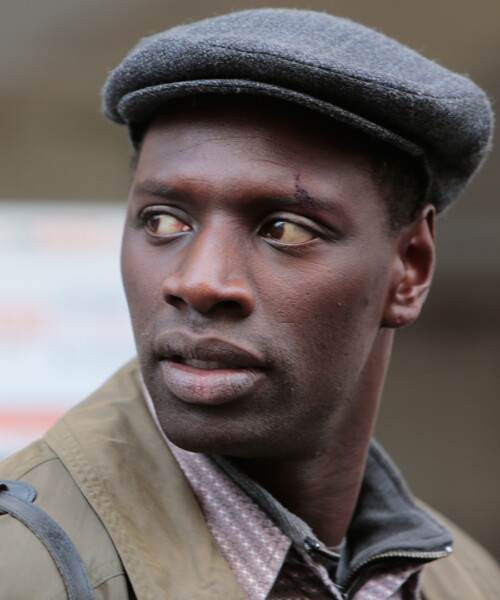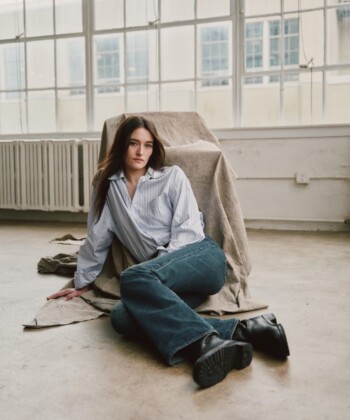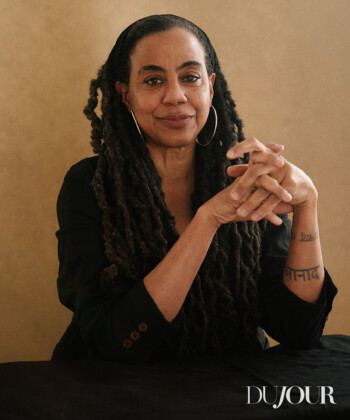In Samba, the new French-language from directors Olivier Nakache and Eric Toledano, Omar Sy—most recently seen in a slew of big-budget action movies—takes on a quiet, affecting role as the titular character, an immigrant living in France and exhausting every avenue imaginable to obtain citizenship. He’s paired at one point with a social worker (Charlotte Gainsbourgh), with whom he finds himself more and more deeply intertwined.
Here, Sy explains what made him interested in a less pyrotechnic film and what it is he hopes audiences walk away with.
You’ve been in X-Men: Days of Future Past and Jurassic World. What attracted you to this romantic dramedy about immigration woes?
First of all, I loved the screenplay. I loved the way the story was written, and the topic was interesting and spoke to the immigration problem in France. Also, it’s a story about two people who are working to have a better life. For me, a character like Samba was a good challenge.
Were you able to talk to people in Samba’s situation for research? Are people even willing to discuss such a sensitive topic?
I had to meet a lot of people who were in the same situation as Samba, who went through a situation like being illegal in France and this time today. I took a lot about that for my character. But for me it was easier because I am from Senegal, so they would trust me already because of my—and because of you know my fame. It was easy for them to talk to me because they felt that they knew me already.
Are you more aware of immigration issues now that you’ve made this film?
Yes, but not that much because I was already aware. My sensitivity to the topic is the same.
Part of your character’s plight is not being able to hold a job: he works in a kitchen, as a window washer and in a trash-sorting plant. Which part was the most affecting for you?
Everything was really intense and each of those things was really different. For me, the garbage station was the hardest to shoot. You were really in it, I could smell the smells and really knew what was going on. When I watched the movie, the most powerful thing for me is a scene when they’re waiting by the tracks to find a job and trucks come and take two guys, leaving 25 others. That’s a picture of our society and it’s so sad for me. I’m always thinking about what we can do to change that.
What do you want people to take away from seeing this film?
It’s always difficult to say what people have to think, what people have to learn or what people have to see. The goal for us is to take a different look on these people. And if someone’s view is different after the movie, it’s a success.




































